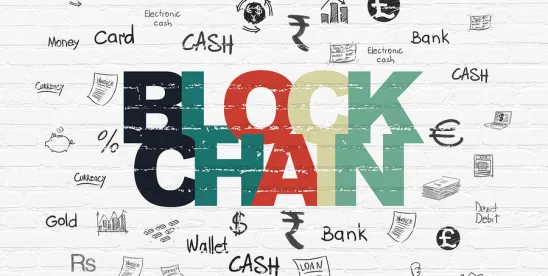There is a lot of buzz around blockchain technology and its potential to revolutionize a wide range of industries from finance and health care to real estate and supply chain management. Reports estimate that over $1.4 billion was invested in blockchain startups in 2016 alone, and many institutions and companies are forming partnerships to explore how blockchain ledgers and smart contracts can be deployed to manage and share data, create transactional efficiencies, and reduce costs.
While virtual currencies and blockchain technology in the financial services industry have been the subject of significant debate and discussion, blockchain applications that could transform the energy industry have received comparatively less attention.
Department of Energy Selects Firms to Develop Blockchain Cybersecurity Technology for the Energy Grid
-
The Department of Energy selected Guardtime, Pacific Northwest National Labs, Washington State University, Tennessee Valley Authority, Siemens, and the Department of Defense Homeland Defense and Security Information Analysis Center to receive a multimillion-dollar award to develop a blockchain keyless infrastructure technology for the energy grid.
-
The effort is aimed at securing distributed energy resources at the grid’s edge and increasing the trustworthiness, integrity, control, and monitoring of energy exchanges. The project will focus on a data exchange platform for automated energy trading and settlement capable of real-time, autonomous detection of unauthorized changes and anomalies.
-
While there may be other technologies capable of supporting automated trading networks for energy, the distributed nature of blockchain technology and its ability to require coordination and consensus among distributed nodes could provide cybersecurity benefits beyond the capabilities of other technologies.
PowerLedger Announces New Projects in Australia and India
-
PowerLedger is an Australian startup that is using blockchain technology to create a peer-to-peer renewable energy-trading network. In Australia, PowerLedger recently announced a collaboration with an energy retailer in Australia, to explore the use of anonymized consumer data to demonstrate the accuracy and security of PowerLedger’s trading platform. The trial is slated to begin in October and run for three months.
-
In collaboration with an Indian IT firm, PowerLedger also announced a series of trials to develop a “Microgrid-as-a-Service” energy-trading platform. The year-long trial will begin in late 2017.
-
The best use cases and applications for blockchain technology in the energy sector are still being developed and refined. These two collaborations represent different ways of incorporating the technology into energy applications to test different models and services. Continual testing and experimentation will be key to developing applications that meet the unique needs of the energy sector.
Electron Awarded Funding to Implement Electricity Trading Platform
-
The London-based energy technology company Electron announced that is has been awarded substantial funding from England’s Energy Entrepreneurs Fund in order to develop and scale a blockchain-powered trading platform that will enable electricity consumers to be compensated to adjust their energy consumption to balance supply and demand on the energy grid through a flexibility market.
-
According to the company’s recent press release, the blockchain trading platform will differ from a traditional trading platform, where buyers and sellers are generally matched on a one-to-one basis. Instead, Electron’s platform will leverage blockchain technology to allow multiple parties to coordinate and share the value of a single consumer’s action. The company refers to this construct as “collaborative trading,” and believes that this will enhance the overall value and liquidity of the market while allowing individual consumers to share costs.
-
The platform is Electron’s latest initiative in a larger effort to promote flexibility and efficiency in the energy space. As reported in an earlier issue, the company is also developing a platform designed to promote customer choice by reducing the time it takes for customers to switch energy suppliers.



 />i
/>i
